1. American Conspiracies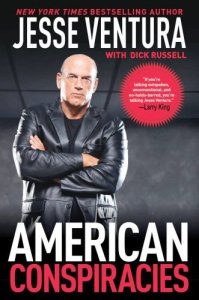
by Jesse Ventura (2010)
This is one of those books that makes you say, “Even if only half of this is true, then my government is really my enemy.” However, what is the basis that even half of this could be true? Don’t we have to evaluate each item on its own merit? Of course, which means the “even only half” supposition goes out the window.
Then you have to ask, “Well, if it weren’t true, then wouldn’t someone sue him?” To that we have to say “probably not” because to bring a lawsuit against the former governor and Navy Seal would mean to expose oneself to subpoena, witness testimony, cross examination, discovery, and more. So it makes perfect sense that if the Bush family were truly guilty of Ventura’s claims, they would be better off ignoring everything and cruising along as they have been for nearly a century of wealth, power, and suspicion of more crimes than anyone should have in their entire ancestry.
Ventura, an outspoken man who seems about as genuine as they get, tells us very convincingly how the Bush family stole two elections, were involved with murder to cover up one of them, may have had a hand in 9/11, and more. He also details how the CIA, which Bush I was once at the helm, was plausibly involved with the assassinations of JFK, MLK, and Malcolm X. He details how Reagan carefully broke the law when selling arms to rebels and how the media allowed him to get away with it.
It’s clear that most of Ventura’s claims are unsubstantiated, but it’s also clear that most of them are worth talking about at a party while refilling your plastic cup from the second of three kegs before it’s time to pull the burgers and chicken off the grill. Enjoy it, don’t expect the world to change, but at least keep your eyes open a little wider the next time you see black SUVs and men in dark sunglasses.
It’s worth reading because it will keep you on your toes. We know our government, all governments have secrets, and we know their priorities are not the general public. What their actual priorities are is anyone’s guess.
2. America Again: Re-becoming the Greatness We Never Weren’t
by Stephen Colbert (2012)
Two things:
I love Stephen Colbert. He’s brilliant in the direction of a Steve Martin kind of brilliance. He’s not there yet, but he’s on his way. Martin, when you combine everything he does, is likely the most talented individual who has ever existed. Once I knew who Colbert was, I never missed an episode of his show, The Colbert Report. I’m disappointed I wasn’t watching The Daily Show when he was a featured member.
It’s probably just me, but I can’t recommend this book. I get the satire, brilliant of course. I get the humor of the absurd, also brilliant. However, it starts to become a one-joke book after a while. Eventually, it was too predictable when the jokes would pop in. If you’ve seen his show, then you’ll eventually say, “Okay, okay. I get it. Thanks for flying with us.”
It’s not that the jokes aren’t funny. Individually, they all are, but they start to blur together into something not at all memorable. If you’re not very familiar with Colbert, you’ll likely enjoy it more than I did.
3. Driving Mr. Yogi
by Harvey Araton (2012)
If you claim to be a Yankee fan, you are obligated to read this. You really have no choice. If you claim to be a baseball fan, you should read this because you can’t ignore the fact that Yogi Berra is statistically one of the top ten World Series performers of all time. He’s got 13 World Series rings, good luck finding anyone with more, but that’s not why the book is important. It’s important because, when it comes to those celebrated in sports or entertainment, there just aren’t many nice guys to talk about. Yogi is about the nicest, most genuine guy you’re going to find.
The guts of the book focus not just on Yogi but also on another Yankee Hall of Famer, Ron “Gator” Guidry. He, quite by accident and after having played for the Yanks a generation apart from Berra, became one of Yogi’s best friends.
I’m partial to books about baseball, but because of that I’m also more critical of baseball books than most other books. For example, it isn’t difficult for a director to research the correct pronunciations of players’ names. In this case, there were at least six names mispronounced. That’s annoying. Additionally, and subjectively, I wasn’t thrilled that the narrator would slip into a bit of a Hispanic accent when reading quotes from Hispanic players. Can a book have some kind of a Hispanic font for the print version? I don’t think so.
The most compelling part of the book centers on the disagreement and subsequent reunion between Berra and longtime Yankee owner George Steinbrenner. Many believed that the famous rift was caused when Steinbrenner fired Berra as manager, but that’s not the whole story. I’ll save that for anyone who might choose to read it.
The book is mainly told from Guidry’s point of view. As with the Hispanic quotes, Guidry’s are read with a southern drawl because he hails from Louisiana. He was not known publicly as being outspoken or assertive, but it seems there was another side to Gator that comes through during the book. What I appreciated most was his honesty when describing his early years with the Yankees, how at one point he quit the team until his wife convinced him to return. Luckily for him he hadn’t told anyone he had quit. He just started driving from New York on his way back to Louisiana but turned his truck around after about two hours of driving.
There’s plenty of the expected tales about the innocent and occasional verbally bumbling Berra, causing me to laugh out loud more than once. As previously stated – Yankee fan = must read. Baseball fan = should read. Anyone else = eh, probably not.
4. American Gods
by Neil Gaiman (2001)
There was no way to avoid all the accolades bestowed upon this book. There was also no way I could agree with them. American Gods was a rambling tale, stretching both the laws of physics and logic, running around the country while not fully explaining what the hell was happening. Whether people had magical abilities was secondary to what the hell they were trying to accomplish, which was never very clear and probably for a good reason.
The story seemed to have been shot from the hip, Gaiman likely “pantsing” it, making it up as he went along. An interview at the end of the book, however, has him explaining when and how the story had come to him but not much in the way of plotting it. It was more like two or three separate story ideas that he melded into one, which probably hurt the whole thing.
It starts with our main character called Shadow about to be released from prison after serving three years for assault. Unfortunately, only days before his release, his wife is killed in a car accident. He leaves prison completely lost and unsure what he will do next. On the plane heading home, a strange man who calls himself Wednesday seems to know everything about him and offers him a job. Though Shadow wants to avoid the man, each fact Wednesday seems to know brings the parolee closer to accepting the job. Finally, when Shadow learns that his wife was having an affair with one of Shadow’s friends and together they died in the accident, Shadow accepts the stranger’s offer.
What commences is part road trip, part generational epic, part fantasy/sci-fi, and part murder mystery. There are periodic chapters that illustrate various tribes from hundreds, thousands, and maybe tens of thousands of years ago coming to the land that would be called America. Some of them are described as being godlike, but it’s never clear if that is perception or reality. A tribe carries and worships a mammoth skull as they roam west to east across the Bering Straits. A member of the tribe seems to have supernatural ability, but it isn’t clear. Men from Easter Europe and the Mideast connect in what seems like a recent version of New York. Their abilities are also unclear as is their reason to exchange identities.
There are older and newer gods, some portrayed as kind of “old school” and others appearing rather “new wave.” There are many deaths, more like gruesome murders, but the reasons aren’t fully demonstrated. It’s a book I would have bailed on about 25% through, but I chose to trudge on both due to the reviews as well as wanting to give a qualified comment, which I can’t fairly do after quitting. Though they are referred to as “gods” and seem to have lived hundreds, thousands of years, they also die from gunshots just as easily as humans, and that makes little sense.
There are small towns, big cities, and rural outposts where alleged gods meet among the commoners. Characters briefly mentioned at the beginning show up at the end as if we’re supposed to have expected them, but they serve no more purpose than to extract exposition from Shadow. Also scattered throughout the story is Shadow’s wife, dead of course, but somehow appearing in a very physical form and going so far as to kill people in order to protect her husband.
Either American Gods is a mess or I’m just not smart enough to understand it. I’m leaning towards the former, but the other is not impossible. If you’re not smart enough to know something, you’re probably not smart enough to know that you don’t know it. If the book were not so lengthy – 20 hours on CD/MP3 – I would recommend you give it a shot, but that’s a lot of time that could be spent reading two other books. On American Gods, I’m an atheist.
5. Revival
by Stephen King (2014)
This one contains a spoiler, and there will be an ALLCAPS warning.
When June of 2015 arrives, King will have released three novels in the past year. He should have instead spent all that time making one good one. That comment doesn’t include the next one of course, as I can’t have read it yet – nor will I attempt it. King has consistently created one disappointment after another, despite what the townspeople say about the Emperor’s new clothes.
Revival continues King’s narrative trend to build a novel with what seem like short stories, blocks of text that seem like extended anecdotes that contain, sort of, their own moment and are loosely connected to the overall story arc. They involved the same characters, but they don’t necessarily contribute or are necessary to the plotline, should there be one. This is the result of King’s refusal to outline a story. He writes a chapter, plants some seeds in front of us, and we have to wonder which will actually grow into something relevant later.
We basically follow almost the entire life of Jamie Morton, a (surprise!) New England kid a little awkward but with talent and promise, and it’s not unexpected that his talent is on the guitar now that King is doing his best to pursue those things he never had a chance (I might be stretching) to pursue as a child. The rest of the story is twofold: Jamie’s life in rock n roll, and Jamie’s life with the comings and goings of preacher Charles Jacobs.
That’s where the episodes fall into place, with Jamie’s drug issues, falling in and out of jobs, falling in and out of love, but nothing that really matters except to eventually get him to an ending that, well, is just another King ending. Something else that’s just “another King” thing is mentioning characters or events from other books. In this one, he references his novel Joyland. In Dr. Sleep, he referenced Mr. Mercedes. Oh, isn’t he clever? What I haven’t liked is his recent tendency to have characters calling people “rubes.” It’s a derogatory term for someone who is easily fooled and taken advantage of. Maybe he doesn’t realize that a growing number of his readers are starting to feel that way – taken advantage of by faithfully buying up everything with his name on it, whether worthy or not.
Along the way are seeds planted that never grow. There are suggestions about psychic ability that never pan out. There’s talk about a “new” or “different” kind of electricity, but that doesn’t really show up. The preacher claims to have an invention that could bring an entire reservoir to a boiling point, but how it works is never explained. There are giant ants that briefly show up again at the end. There’s a definite moment when someone lies, but it’s never explained why. One of the best ways to create conflict is to show a reader someone lying. It makes you wonder why they lied, and it also whets your appetite for when the lie will be found out. Neither happens, so what’s the point? It’s just one red herring after another, but none of them are ever served, so it’s just one big tease.
SPOILER ALERT NOW!!!
It’s clear from about halfway into the story that there will be something grand happening at the end, but it’s fairly cleverly disguised. However, as is fit to most King stories, it’s a disappointment. The preacher, who has a great affinity for electricity, is going to use it to bring a dead woman back to life. When he does, the dead woman’s mouth opens, and a big claw comes out. It snaps back and forth until Jamie shoots at it. The claw dies, the woman falls back into death, and that’s pretty much it. Yeah, some sycophantic King followers will tell me I’ve short-changed the moment, but I disagree.
Revival is another of the same. Compare a King novel to a dinner at a fine restaurant. Great appetizer, above average salad, exciting entrée, and then dessert sucks. To contradict King’s own words – no, it wasn’t worth the ride to get there. Oh, one more thing – the giant ants. It seems that when we die, there is no heaven. We are all assigned to a giant ant that puts a collar and leash on us. Then it whips you while forcing you to just perpetually walk forward to no end. Welcome to the afterlife. Welcome to Revival.
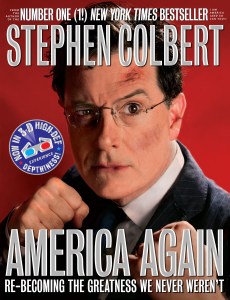
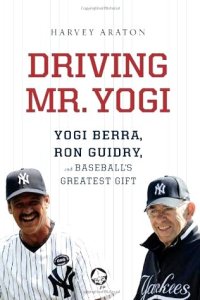
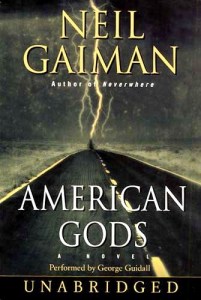
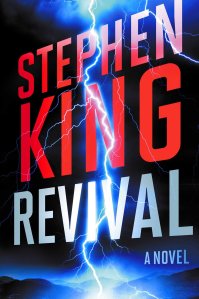



I have American Gods on my shelf. I’ll give it a shot. Thanks for the reviews.
thanks for stopping by. it’ll take concentration to get through it.
1) even if one doesn’t care for the Yankees, Yogi, Mickey Mantle, and Joe DiMaggio – you just can’t dislike them.
2) Gaiman never did anything for me.
3) Not sure if Ventura is a truth teller or has no filter – but I do believe based on a book I read by a former FBI agent that the Kennedy shooting was covered up and or aided by J. Edgar Hoover and LBJ. So that could be plausible. A government that’s not transparent is bad for the citizens.
you betcha – on all counts. thanks for stopping by.
My dad took me to see Mickey Mantle play in Cleveland when I was very young – it was late in his career and he had those big leg wrappings – and one time he swung so hard he fell down. I’ve never been one for celebrity-itis but it’s one of my fondest memories.
it’s a shame the advancements in related surgeries had not been around yet because i’m sure they would have helped him greatly. Gale Sayers too.
I know – some of those career ending surgeries would be a 2 week scope now.
Agree with your King review completely: He remains prolifically inconsistent. As for “American Gods” point must be granted for the excellent “What I Believe” soliloquy towards the end, I believe.
i will revisit that. i remember it, but it’s not standing out to me, probably because i was already not thrilled. so perhaps i did not give that part it’s due. thanks.
Off topic … RM is off the charts this morning.
it’s a free-standing, always relevant, worthy of interrupting, constant topic. but i left the house at 8. dangit.
Sorry to see your dilemma.